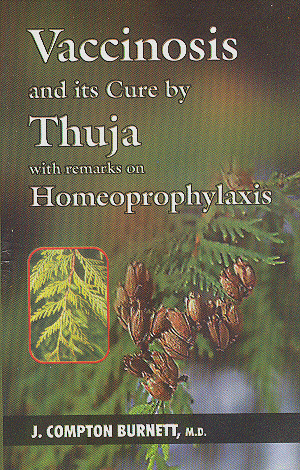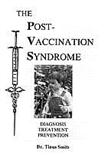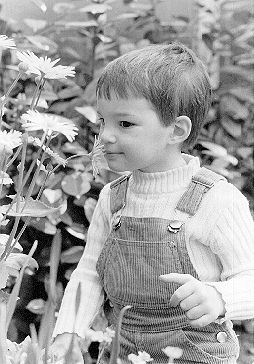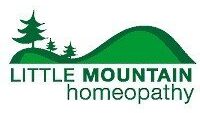
Classical homeopaths have been treating adverse reactions to vaccines for over 100 years.
In the late 1800s, British homeopath Dr. James Compton Burnett was among the first to discover that vaccines trigger chronic disease.
The homeopathic term for chronic adverse vaccine reactions is “vaccinosis.”
Back in the late 1800s, the homeopathic remedy Thuja was often used to successfully treat adverse reactions to the smallpox vaccine.
Still today, Thuja is touted as the #1 homeopathic remedy to use for adverse vaccine reactions. However, though Thuja was an effective treatment for vaccinosis back in Burnett’s day, in modern times it is largely ineffective for treating the adverse effects of vaccines.

To find out what works for vaccinosis in modern times, we must turn to the work of modern Dutch homeopath Dr. Tinus Smits. Dr. Smits is both a medical doctor and homeopath who has been practicing homeopathy for over 20 years. He is also a seasoned expert in treating what he calls PVS: Post-Vaccination Syndrome.
Definition of Post-Vaccination Syndrome
Post-vaccination syndrome is defined as any symptoms that manifest after vaccination. PVS can be divided into an acute and chronic syndrome.
Main Symptoms of Acute PVS
Fever, convulsions, absent-mindedness, encephalitis and/or meningitis, limbs swollen around the point of inoculation, whooping-type cough, bronchitis, diarrhea, excessive drowsiness, frequent and inconsolable crying, penetrating and heart-rending shrieking (cri encéphalique), fainting/shock, pneumonia, death, and Sudden Infant Death Syndrome (SIDS).
Main Symptoms of Chronic PVS
Colds with amber or green phlegm, inflamed eyes, loss of eye contact, squinting, inflammation of the middle ear, bronchitis, expectoration, coughing, asthma, eczema, allergies, inflamed joints, tiredness and lack of vigour, excessive thirst, diabetes, diarrhea, constipation, headaches, disturbed sleep with periods of waking and crying, epilepsy, rigidity of the back, muscle cramps, light-headedness, lack of concentration, loss of memory, growth disturbances, lack of coordination, disturbed development, behavioural problems such as fidgeting, aggressiveness, irritation, moodiness, emotional imbalance, confusion, loss of will-power, and mental torpidity.
Which Vaccines are the Most Problematic?
According to Dr. Smits, the most problematic vaccines are:
DTaP-IPV vaccine: For diptheria, tetanus, acellular pertussis (whooping cough), and polio. This is a combination vaccine given in Canada. In other countries the name of this vaccine may be slightly different. Vaccinations with this vaccine in Canada start at 2 months of age and are repeated at 4 months, 6 months, 18 months, and 4-6 years old.
HiB vaccine: For Haemophilis influenzae type b. This vaccine is given at the same times as the DTaP-IPV vaccine except that there is no dose at 4-6 years.
MMR vaccine: For measles, mumps, and rubella. This vaccine is first given when the child is a year old and is repeated either at 18 months of age or at 4-6 years of age.
(HB) Hepatitis B: 3 doses are now recommended at infancy in Canada. Usually at the 2 month, 4 month, and 6 month mark.
Influenza vaccine (including H1N1): Recommended for children 6-23 months of age and seniors over 65. The H1N1 vaccine is recommended for everybody.
Another potentially problematic vaccine:
(Var) Varicella vaccine: For chicken pox. Given at the age of 1 year.

The Diagnosis of Post-Vaccination Syndrome
Post-vaccination syndrome should always be considered whenever the person’s health complaints started at the time of, or the period following, vaccination. The fact that the person has displayed no direct or acute reaction to a vaccination does not necessarily exclude the possibility of the vaccine being the cause of chronic complaints. These complaints usually become clear only after one, two or even more weeks have passed. Also, in some cases it is often only after the second, third or fourth administration of the vaccine that problems suddenly occur.

Homeopathic Treatment of PVS
Homeopathic treatment of PVS must only be attempted by a properly trained classical homeopath. Once the homeopath has identified the offending vaccine, s/he must give the person the homeopathic version of the offending vaccine in order to neutralize the vaccine’s harmful effects. The homeopathic form of the vaccine is completely safe and non-toxic, as it has been strongly diluted and potentised.
I am now offering a homeopathic protocol for the prevention of vaccine damage at the clinic. Contact the clinic to book an appointment.
For a more detailed explanation of Dr. Tinus Smit’s PVS Protocol, download his free booklet: “The Post-Vaccination Syndrome.” The booklet also goes over in much detail a large number of Dr. Smit’s cured cases of PVS.
Click here to learn about Homeoprophylaxis: A Safe, Effective Immunity Booster

3 thoughts on “Homeopathy for Adverse Reactions to Vaccinations”